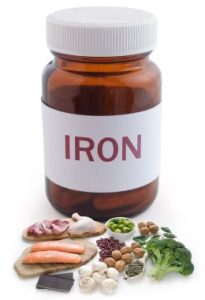
Type Of Supplement Will Dietician Most Recommend (5 Essential Supplements)
Type of supplement will dietitian most recommend depends on an individual’s nutritional needs and health goals, but commonly suggested ones include vitamins, minerals, or omega-3 fatty acids to address specific deficiencies or support overall well-being.
When it comes to the vast universe of dietary supplements, one question shines as bright as a supernova: type of supplement will dietician most recommend? It’s a quest that often feels like searching for a hidden treasure chest, tucked away in the labyrinth of health and wellness options.
But fear not, for in this journey, we are about to set sail on a voyage to unravel the enigma of the supplement that holds the key to unlocking your optimal well-being. The dietician, like a trusted navigator, will guide us through the complex waters of nutrition, charting a course towards a healthier, more vibrant you.
Join as embark on this thrilling adventure and discover the supplement that’s uniquely suited to your path of vitality and vitality! Dietitians are trusted experts in the field of nutrition and wellness, and they often recommend specific supplements to address individual health needs and deficiencies.
Type of supplement will dietician most recommend depends on several factors, including the individual’s dietary habits, lifestyle, and specific health concerns. To find out which supplements are commonly recommended by dietitians and the reasons behind their recommendations.

Type Of Supplement Will Dietician Most Recommend
Multivitamin For Nutrient Gap
Dietitians frequently recommend multivitamin supplements to individuals who may have nutrient gaps in their diet. These supplements provide a broad spectrum of essential vitamins and minerals, such as vitamin C, vitamin D, and calcium. They help fill nutritional deficiencies that can arise from an imbalanced diet or restrictive eating habits.
Omega-3 Fatty Acids for Heart Health
Omega-3 fatty acid supplements, typically derived from fish oil, are often recommended by dietitians to support heart health. These supplements contain EPA and DHA, which can help lower the risk of cardiovascular disease, reduce inflammation, and improve overall well-being.
Probiotics for Gut Health
Probiotic supplements are favored by dietitians for promoting a healthy gut microbiome. They contain beneficial bacteria that can aid in digestion, support the immune system, and improve the balance of gut flora. Dietitians may recommend specific strains for individual health concerns.
Vitamin D for Bone Health
For those with a deficiency in vitamin D, often due to inadequate sun exposure, dietitians may suggest vitamin D supplements. These supplements play a crucial role in maintaining bone health, and they are essential for the body’s ability to absorb calcium.
Iron Supplements for Anemia
Dietitians frequently recommend iron supplements to individuals with iron-deficiency anemia. Iron is vital for transporting oxygen throughout the body, and insufficient levels can lead to fatigue and other health issues.

Initial assessment
When embarking on an initial assessment, it’s essential to dive deep into several key aspects of an individual’s health and wellness. Let’s start with the medical history, a fundamental cornerstone of this evaluation. Let’s explore chronic medical conditions, such as diabetes or heart disease, and scrutinize the medications a person taking, being vigilant about potential nutrient interactions. It’s equally vital to identify any allergies or intolerances that could impact their dietary choices.
Now, shifting focus to dietary habits, scrutinize the current diet. Let’s delve into the specifics of what they eat and drink, from fruits and vegetables to protein sources and carbohydrates. Also pay attention to dietary preferences, which may include vegetarian or vegan lifestyles, and assess the frequency of their consumption of specific food groups, be it for protein, fiber, or essential vitamins and minerals.
Lifestyle plays an integral role in overall health, so evaluate it as well. Evaluate their activity level and exercise routine, noting whether they’re into high-intensity workouts, yoga, or simple daily walks. Stress levels are examined closely, as stress can significantly impact health, and also delve into their sleep patterns, understanding whether they have restorative, restful sleep or are struggling with insomnia.
Ultimately, the initial assessment revolves around health goals, a reflection of an individual’s aspirations and desires for well-being. Weight management, whether it’s focused on loss, gain, or maintenance, is a common priority. Managing specific health conditions, like diabetes or heart disease, is often at the forefront. And for those who aim to enhance athletic performance, work on tailored strategies to optimize their physical prowess and endurance.
Nutrition deficiency
Nutrient deficiencies are a common concern, and their identification is pivotal for maintaining optimal health. To pinpoint deficiencies, healthcare professionals often rely on blood tests, such as measuring vitamin D, iron, and various B vitamins. These tests provide concrete data that reveal any insufficiencies in the body, helping guide precise interventions.
Clinical symptoms of deficiency can also offer valuable insights. These symptoms, like fatigue, brittle nails, or neurological issues, serve as red flags, prompting healthcare providers to investigate further and determine the specific nutrient shortfall.
Addressing nutrient deficiencies primarily involves recommending nutrient-rich foods as a foundational strategy. Whole foods, brimming with vitamins and minerals, take center stage. These foods provide a natural and balanced way to replenish the body’s nutrient stores, ensuring a sustainable and comprehensive approach to nutrition.
However, in some cases, dietary adjustments alone may not suffice to correct deficiencies. This is where supplementation comes into play. Supplements, carefully chosen and administered at the appropriate dosage and duration, can serve as a valuable tool to bridge the nutritional gap. Whether it’s vitamin tablets, iron supplements, or B12 injections, the choice should align with the individual’s specific needs and under the guidance of a healthcare professional.

Common supplements
Common supplements have become a popular choice for many individuals seeking to bolster their health and well-being. These supplements offer a convenient way to address specific nutritional needs. Let’s explore some of the most frequently used ones:
Vitamins
Vitamin D
Widely recognized for its role in bone health, vitamin D is often taken to ensure strong and healthy bones. It’s commonly associated with sunlight exposure.
Vitamin B12
A crucial nutrient for vegetarians and vegans who may not obtain it from animal sources, vitamin B12 supports energy metabolism and neurological function.
Folic Acid
Particularly important during pregnancy, folic acid is essential for fetal development and reducing the risk of certain birth defects.
Minerals
Iron
Often taken to address anemia, iron is vital for carrying oxygen in the blood, combating fatigue and promoting overall vitality.
Calcium
Known for its role in maintaining bone health, calcium supplements are a common choice for those looking to strengthen their skeletal system.
Magnesium
This mineral is sought after for its contributions to muscle and nerve function, supporting relaxation and reducing cramps.
Omega-3 Fatty Acids
Renowned for their heart-healthy benefits and anti-inflammatory properties, these supplements are frequently used to support cardiovascular health.
Probiotics
These supplements are cherished for their role in promoting gut health and alleviating digestive issues by replenishing the gut with beneficial bacteria.
Antioxidants
Vitamins C and E
Valued for their ability to combat free radicals, vitamins C and E are commonly taken to promote skin health, boost the immune system, and reduce the signs of aging.
In a world where dietary needs and preferences vary, these common supplements have become go-to choices for addressing specific health concerns and optimizing well-being. It’s important to remember that while these supplements can be beneficial, they should be taken in consultation with a healthcare professional to ensure they are appropriate for your individual needs and circumstances.

Specialized supplement
Specialized supplements cater to a wide array of individual needs, from athletes seeking peak performance to individuals with specific medical conditions and those exploring traditional and alternative medicine. Let’s delve into these distinctive categories:
Athletic and Fitness Supplements
Protein supplements
These are the go-to choose for athletes and fitness enthusiasts aiming to enhance muscle recovery and growth. Protein shakes and powders are often utilized to support workout goals.
Creatine
Recognized for its role in boosting strength and endurance, creatine supplements are favored by athletes looking to push their limits during intense training sessions.

Medical Supplements
Prescribed supplements
Tailored to address specific medical conditions, these supplements are often recommended by healthcare professionals to address deficiencies or support treatment plans. They are integral components of managing various health conditions, from vitamin deficiencies to chronic illnesses.
Herbal and Botanical Supplements
Recommendations based on traditional and alternative medicine
Herbal and botanical supplements draw from centuries of traditional wisdom and alternative medicine practices. These supplements encompass a diverse range, from ginseng for energy to turmeric for its anti-inflammatory properties, offering a holistic approach to health and wellness.
Specialized supplements cater to the unique needs and goals of individuals, whether they are athletes striving for peak performance, those managing medical conditions, or individuals seeking alternatives rooted in traditional and alternative medicine. It’s vital to approach these supplements with awareness, seeking guidance from healthcare professionals and experts in the respective fields to ensure they align with individual health objectives and circumstances.
Monitoring and Evaluation
Monitoring and Evaluation are vital aspects of any supplement or health regimen, ensuring that individuals receive the best care and support on their journey to well-being.
Regular Follow-ups
Tracking progress and adherence to recommendations
Regular follow-ups allow to closely monitor and assess an individual’s progress. Also keep a watchful eye on how well they adhere to the prescribed supplementation plan, making adjustments when necessary to ensure their health goals are met.
Adjustments to the supplementation plan as needed
Understanding that everyone’s needs can change over time. Hence, remain flexible, ready to fine-tune the supplementation plan to match evolving requirements, thereby optimizing its effectiveness.
Potential Risks and Side Effects
Education on possible adverse effects
Informed choices are key to safety. Provide comprehensive education on potential risks and side effects associated with supplements, ensuring individuals are aware of what to watch out for and when to seek assistance.
Instructions for safe use
Safety is top priority. Always offer clear, precise instructions on how to safely and effectively use supplements, reducing the likelihood of adverse effects and promoting their overall well-being.
Interaction with Healthcare Providers
Coordination with physicians for patients with complex medical histories
For individuals with complex medical histories, emphasize the importance of collaboration with healthcare providers. By working in tandem with physicians, always ensure that supplement regimens are aligned with the individual’s overall health and medical requirements.
Monitoring and evaluation are the cornerstones of a successful health journey. With regular follow-ups, education on potential risks and side effects, and close collaboration with healthcare providers when needed, always tackle to provide the highest level of care, empowering individuals to achieve and maintain their optimal state of health.
Education and Empowerment
Education and Empowerment are fundamental principles in our approach to wellness, fostering self-sufficiency and knowledge to make informed choices.
Teaching Self-Sufficiency
Encouraging clients to make informed choices regarding supplements
Always believe in empowering individuals to take charge of their health. By providing them with the knowledge and tools to make informed decisions about supplements, enable them to navigate the complex world of nutrition confidently.
Nutrition and Dietary Education
Promoting a balanced and nutrient-rich diet as the foundation of health
Recognize that true well-being starts with a strong nutritional foundation. Through this guidance, promote the value of a balanced and nutrient-rich diet, arming individuals with the understanding of how their food choices impact their health.
This commitment to education and empowerment extends beyond just offering recommendations; it’s about fostering a lifelong journey of knowledge, self-sufficiency, and wellness. By imparting the wisdom of nutrition and supplements, equip individuals with the tools to make choices that enhance their overall health and quality of life.
Frequently Asked Questions (FAQ) about Dietary Supplements Recommended by Dietitians
Q1: What type of dietary supplements will a dietitian most likely recommend?
A: Dietitians typically recommend dietary supplements based on individual nutritional needs, which may include vitamins, minerals, or other specialized supplements.
Q2: Are dietary supplements necessary for everyone?
A: No, dietary supplements are not necessary for everyone. Dietitians recommend supplements on a case-by-case basis, depending on individual dietary deficiencies and health goals.
Q3: How do I know if I need dietary supplements?
A: A dietitian can assess your nutritional status through blood tests and a detailed dietary analysis to determine if you need supplements.
Q4: What are common dietary supplements recommended by dietitians?
A: Common dietary supplements include vitamin D, B vitamins, calcium, iron, and omega-3 fatty acids. However, the specific recommendations depend on the individual’s needs.
Q5: Can I self-prescribe dietary supplements without consulting a dietitian?
A: It’s not recommended to self-prescribe supplements, as excessive or inappropriate use can have health risks. Always consult a dietitian or healthcare professional for guidance.
Q6: Are herbal or botanical supplements recommended by dietitians?
A: Dietitians may recommend herbal or botanical supplements in some cases, but it depends on the individual’s needs and safety considerations.
Q7: What are the potential risks of taking dietary supplements without professional guidance?
A: Taking supplements without guidance can lead to nutrient imbalances, toxicity, and interactions with medications, among other risks.
Q8: How do dietitians determine the right dosage for dietary supplements?
A: Dietitians base supplement dosages on individual requirements, considering factors like age, gender, diet, health conditions, and specific goals.
Q9: Can dietary supplements replace a balanced diet?
A: No, dietary supplements should complement a balanced diet, not replace it. Whole foods provide a wide range of nutrients that supplements cannot fully replicate.
Q10: Do dietitians recommend weight loss supplements?
A: Dietitians typically prioritize a healthy, sustainable approach to weight management through diet and exercise. They may recommend supplements sparingly, if at all, and only in specific cases.
Q11: How do I find a qualified dietitian to get supplement recommendations?
A: To find a qualified dietitian, you can ask for referrals from your healthcare provider or search online for licensed and registered dietitians in your area.
Q12: Are dietary supplements regulated by any authorities?
A: Dietary supplements are regulated by the Food and Drug Administration (FDA) in the United States to ensure safety and quality, but not for their efficacy.
Q13: Can I get dietary supplements over-the-counter, or do I need a prescription from a dietitian?
A: Many dietary supplements are available over-the-counter, but it’s advisable to consult a dietitian or healthcare provider for personalized recommendations.
Conclusion
In conclusion, the type of supplement will dietician most recommend depends on the specific nutritional needs and health goals of an individual. Whether it’s a vitamin, mineral, protein, or other dietary supplement, the dietician’s recommendation will be tailored to address any deficiencies or imbalances in the person’s diet. It is crucial to consult with a qualified dietician who can assess your unique circumstances and provide personalized guidance to help you achieve optimal health and well-being. Ultimately, the best supplement for one person may not be the same for another, underscoring the importance of individualized dietary advice.